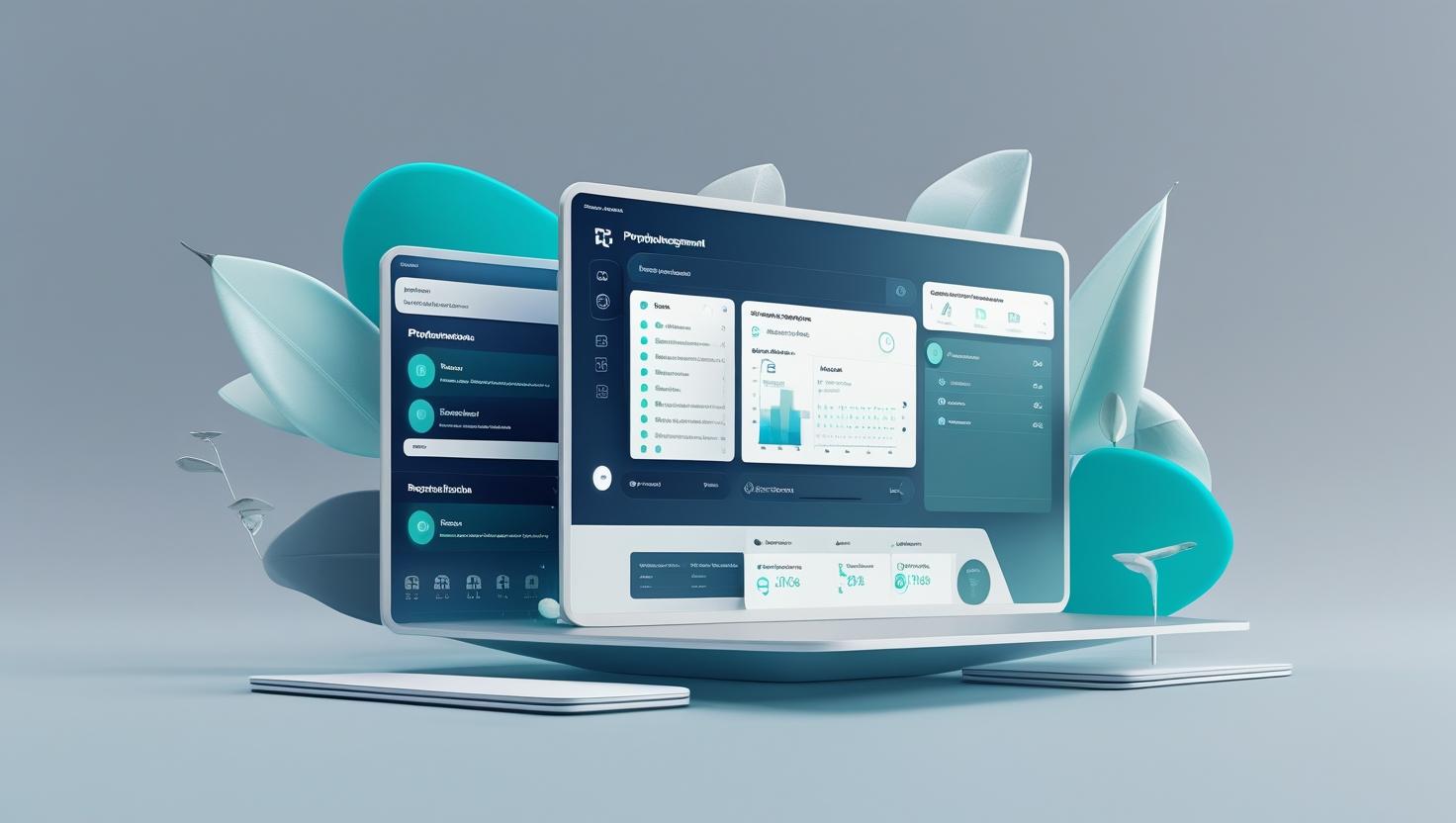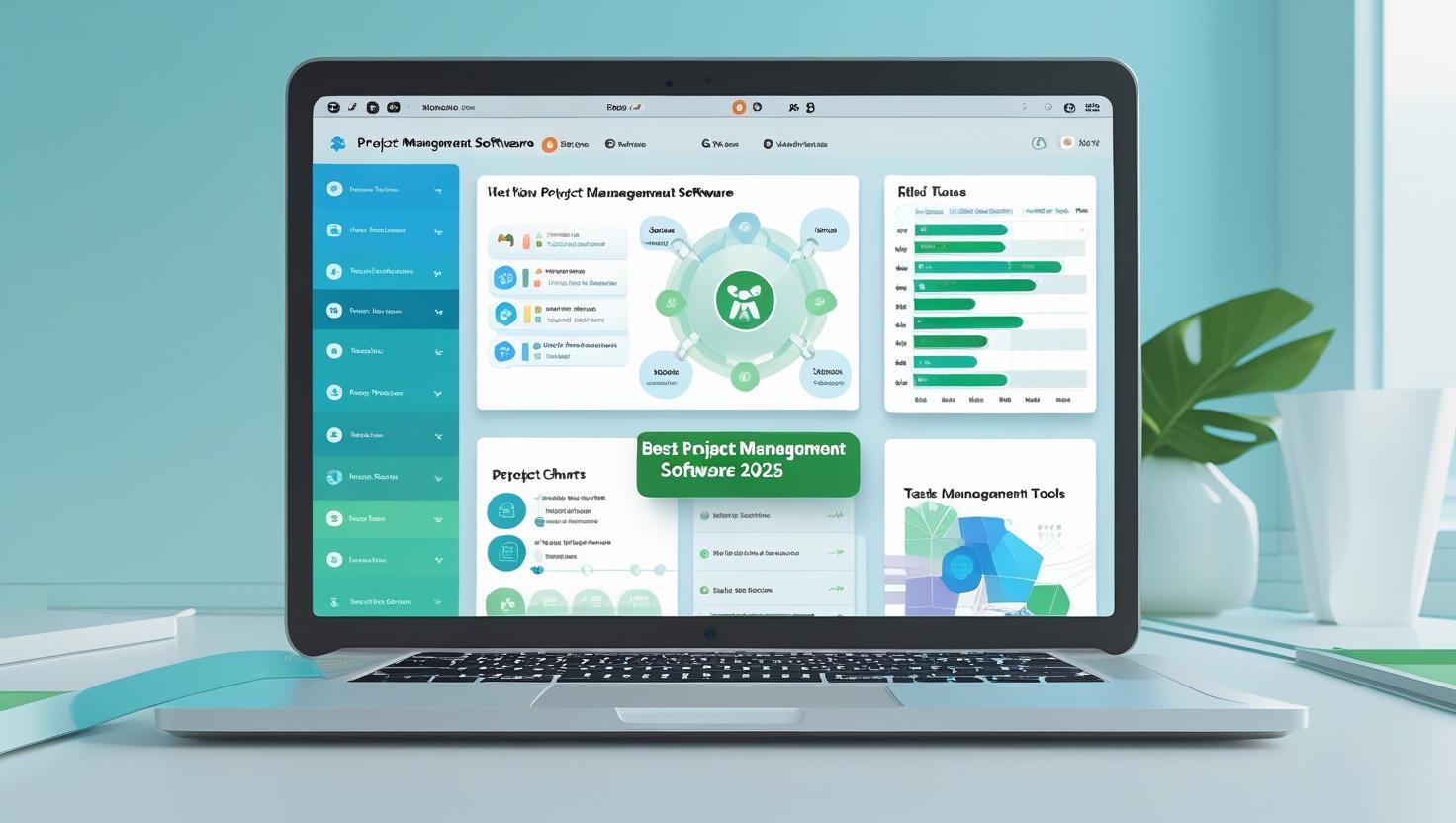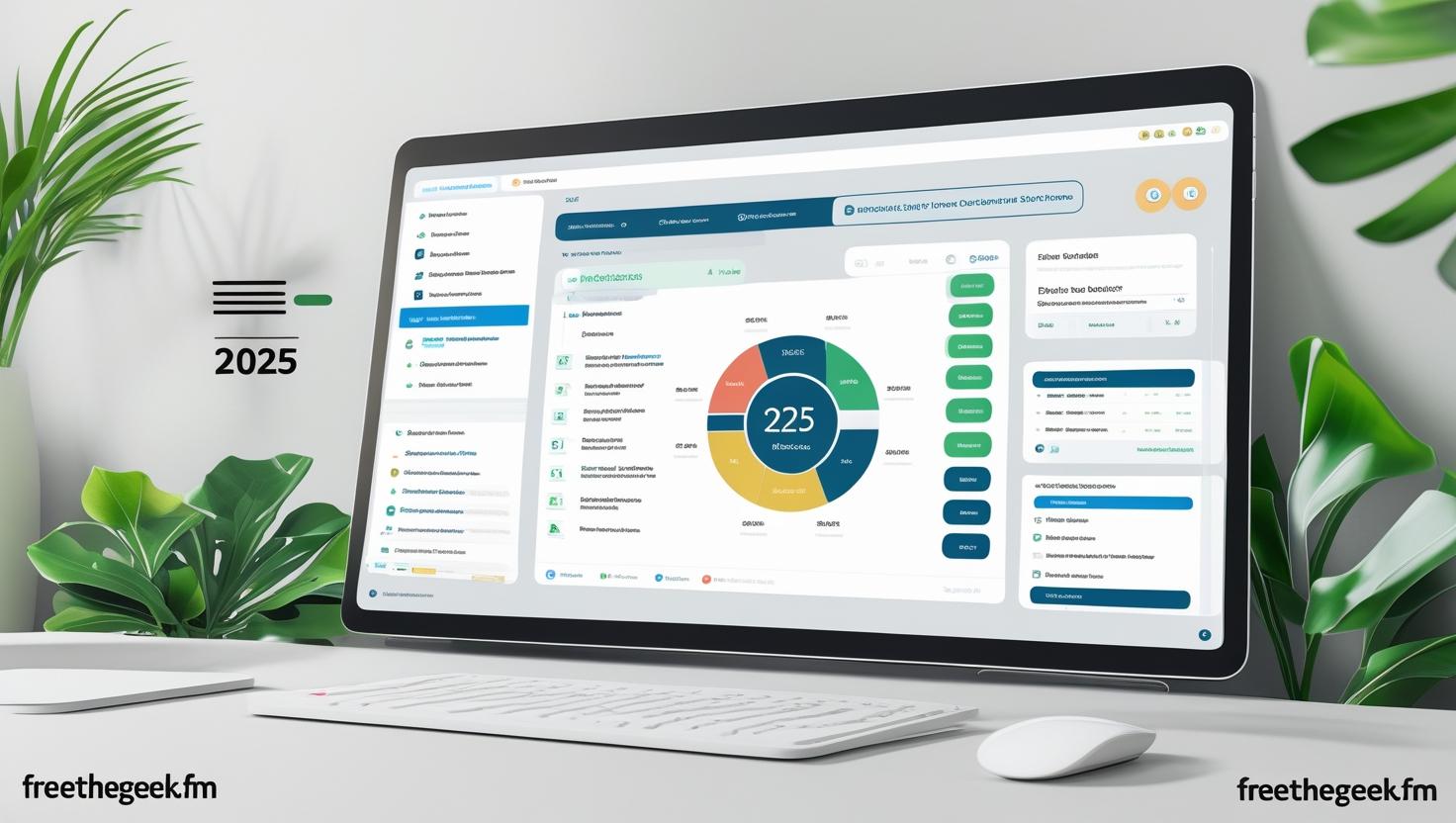Project management has become the backbone of modern workspaces, especially as hybrid and remote teams continue to grow. With countless options available, choosing the best project management software in 2025 is crucial to staying competitive, delivering projects on time, and managing team collaboration effectively.
Whether you’re running a startup, an agency, or an enterprise operation, the right tool can transform your workflow, automate repetitive tasks, and provide deep insights into team performance. This comprehensive guide compares top tools, their features, pricing, pros, and cons to help you make an informed decision.
Why You Need Project Management Software in 2025
In today’s business environment, juggling emails, spreadsheets, and multiple communication channels is no longer efficient. Project management software:
- Improves productivity through automation
- Enhances team collaboration in remote settings
- Ensures tasks are completed on time
- Keeps stakeholders aligned
- Provides visibility into project timelines and budgets
Modern tools also integrate AI to offer predictive analytics, automated task allocation, and smart notifications.
Top 10 Best Project Management Software in 2025 (Quick Overview)
| Software | Best For | Key Feature | Pricing Starts At | Free Plan |
|---|---|---|---|---|
| ClickUp | All-in-one platform | Custom dashboards, AI assistant | $7/user/month | ✅ |
| Monday.com | Visual project tracking | Workflows & automations | $10/user/month | ✅ |
| Asana | Agile and task management | Timeline, goal tracking | $10.99/user/month | ✅ |
| Trello | Simplicity and Kanban | Cards & boards | $5/user/month | ✅ |
| Notion | Wiki + PM hybrid | Docs, databases, tasks | $8/user/month | ✅ |
| Smartsheet | Spreadsheet-like PM | Gantt charts & integrations | $9/user/month | ✅ |
| Wrike | Enterprise-grade management | Real-time collaboration | $9.80/user/month | ✅ |
| Teamwork | Client-focused projects | Billing, time tracking | $5.99/user/month | ✅ |
| Basecamp | Simplicity for teams | All-in-one communication | $15/user/month | ❌ |
| Jira | Software development teams | Agile boards & sprints | $7.75/user/month | ✅ |
Detailed Reviews of Top Project Management Tools

1. ClickUp – Best Overall Project Management Tool
Why It’s Great:
ClickUp is a comprehensive platform offering everything from task tracking and docs to mind maps, sprints, and an integrated AI assistant. Its customization features make it suitable for all team sizes.
Key Features:
- Custom dashboards
- ClickUp AI for writing and summarizing
- Workload & timeline views
- Goal tracking and milestones
Pros:
- Highly customizable
- Great free plan
- Integrates with 1,000+ tools
Cons:
- Steeper learning curve for beginners
2. Monday.com – Best for Visual Planning
Why It’s Great:
Monday.com excels with its visually intuitive boards and workflows. Ideal for teams looking for automation and collaboration in a user-friendly interface.
Key Features:
- Workflow automation
- Time tracking
- Gantt, Kanban, and calendar views
- Third-party integrations
Pros:
- Highly visual layout
- Automation for repetitive tasks
- Extensive templates
Cons:
- Pricing increases with added features
3. Asana – Best for Agile & Goal-Oriented Teams
Why It’s Great:
Asana combines traditional project tracking with goal management and Agile methodology support. It’s a favorite for tech teams and marketers.
Key Features:
- Timeline & list views
- Goal setting & progress tracking
- Custom workflows
- Advanced reporting
Pros:
- Powerful for Agile project planning
- Smart UI with rich features
- Excellent collaboration features
Cons:
- Some advanced features locked behind premium
4. Trello – Best for Simplicity
Why It’s Great:
Trello’s card-based Kanban interface is perfect for personal use, small teams, or those new to project management software.
Key Features:
- Drag-and-drop cards
- Power-ups (integrations)
- Automation via Butler
- Mobile-friendly interface
Pros:
- Extremely easy to use
- Free forever plan is generous
- Good for basic task management
Cons:
- Lacks advanced project views
5. Notion – Best for Document + Task Combo
Why It’s Great:
Notion merges documentation and task tracking, ideal for startups and creative teams who want to centralize knowledge and planning.
Key Features:
- Docs, wikis, databases
- Kanban boards and calendars
- Project templates
- AI-powered writing assistant
Pros:
- Flexible and all-in-one workspace
- Customizable pages and databases
- Excellent for remote teams
Cons:
- Can be overwhelming at first
6. Smartsheet – Best for Spreadsheet Lovers
Why It’s Great:
If you love spreadsheets but need project management power, Smartsheet is your best bet. It offers a familiar interface with advanced tracking.
Key Features:
- Gantt charts, grids, and cards
- Automated alerts
- Resource management
- Advanced reporting tools
Pros:
- Familiar UI for Excel users
- Powerful automation
- Strong analytics tools
Cons:
- Less visually appealing
7. Wrike – Best for Enterprise-Scale Projects
Why It’s Great:
Wrike is tailored for large teams and enterprises with robust collaboration and reporting tools, ideal for cross-functional teams.
Key Features:
- Real-time activity stream
- Resource and time tracking
- Workflow templates
- Risk prediction AI
Pros:
- Great for enterprise project visibility
- Custom request forms
- Extensive integrations
Cons:
- Overkill for small teams
8. Teamwork – Best for Client Services & Agencies
Why It’s Great:
Teamwork includes billing, time tracking, and client permissions, making it a top pick for agencies and client-based businesses.
Key Features:
- Task management & milestones
- Client permissions
- Time tracking & invoicing
- Templates for recurring projects
Pros:
- Designed for service businesses
- Client-focused features
- Affordable plans
Cons:
- Interface not as modern as competitors
9. Basecamp – Best for Team Communication
Why It’s Great:
Basecamp’s all-in-one structure is designed for easy communication and collaboration with features like message boards, docs, and scheduling.
Key Features:
- To-do lists, file sharing
- Team messaging & pings
- Centralized project hub
- Simple UI
Pros:
- No per-user fee (flat pricing)
- Simple and distraction-free
- Good for small teams
Cons:
- Fewer integrations and customization options
10. Jira – Best for Software Development Teams
Why It’s Great:
Jira, by Atlassian, is the gold standard for development teams using Agile, Scrum, or Kanban.
Key Features:
- Custom workflows
- Sprint planning & backlogs
- Bug tracking
- DevOps and Git integrations
Pros:
- Deep Agile tools
- Customizable boards
- Scalable for large dev teams
Cons:
- Not ideal for non-technical users
Comparison Table: Key Features Side-by-Side
| Tool | Agile Support | Docs & Wiki | Time Tracking | AI Features | Free Plan |
|---|---|---|---|---|---|
| ClickUp | ✅ | ✅ | ✅ | ✅ | ✅ |
| Monday.com | ✅ | ❌ | ✅ | ✅ | ✅ |
| Asana | ✅ | ❌ | ❌ | ✅ | ✅ |
| Trello | ✅ | ❌ | ❌ | ❌ | ✅ |
| Notion | ✅ | ✅ | ❌ | ✅ | ✅ |
| Smartsheet | ✅ | ✅ | ✅ | ❌ | ✅ |
| Wrike | ✅ | ✅ | ✅ | ✅ | ✅ |
| Teamwork | ✅ | ✅ | ✅ | ❌ | ✅ |
| Basecamp | ❌ | ✅ | ❌ | ❌ | ❌ |
| Jira | ✅ | ✅ | ✅ | ✅ | ✅ |
How to Choose the Best Project Management Software for Your Team

1. Assess Your Team Size
- Small teams: Trello, Notion, Basecamp
- Medium to large: ClickUp, Asana, Monday.com
- Enterprise: Wrike, Jira
2. Understand Your Workflow
- Agile: Jira, Asana, ClickUp
- Waterfall or hybrid: Smartsheet, Monday.com
3. Check Integration Needs
- Tools like Slack, Google Workspace, Zoom, etc.
- ClickUp and Monday.com have vast integration libraries
4. Consider AI and Automation
- AI can save time on task assignments and reports
- Look for tools like ClickUp, Asana, and Wrike with built-in AI
5. Budget Wisely
- Start with free plans
- Scale up as your needs grow
Future Trends in Project Management Software
- AI Integration: Tools will offer smarter task suggestions, predictive delays, and real-time optimization.
- Remote Team Support: Enhanced collaboration, real-time editing, and async video features.
- Custom Automation: More tools will let you build no-code automations to streamline processes.
- Better UX/UI: Sleeker interfaces with fewer clicks and drag-and-drop configurations.
FAQs: Best Project Management Software 2025
Q1: What is the most beginner-friendly project management tool?
Trello and Basecamp are the most user-friendly for beginners due to their minimal learning curve.
Q2: Which tool is best for Agile project management?
Jira is the industry standard for Agile teams, followed by Asana and ClickUp.
Q3: Can I use these tools for free?
Yes, most tools like ClickUp, Monday.com, Asana, and Trello offer generous free plans.
Q4: What’s the best software for remote teams?
Notion, ClickUp, and Basecamp offer excellent features tailored for remote and hybrid collaboration.
Q5: Which software offers the best AI features?
ClickUp AI, Asana Intelligence, and Wrike’s AI Engine are leading the pack in smart project assistance.
Final Thoughts
Selecting the best project management software in 2025 boils down to understanding your team’s workflow, size, and budget. Whether you need a simple Kanban board or an AI-powered enterprise suite, there’s a tool built for your needs.
Start with a free version, explore integrations, and gradually upgrade to unlock advanced features. With the right software, your team can communicate better, move faster, and deliver results that matter.
